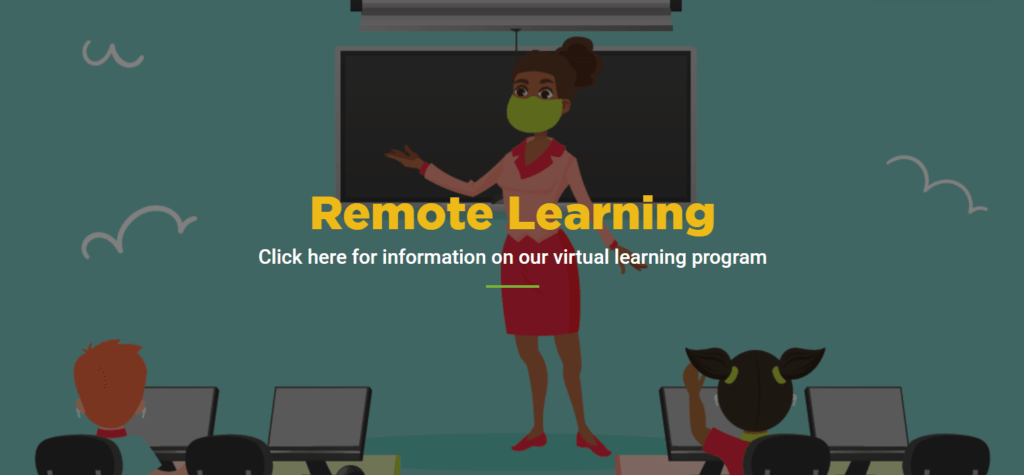Beanstalk and COVID-19: What Parents and Guardians Need to Know
Parents and guardians play an important role in reducing the risk of COVID-19 transmission in child care programs. See below to learn how you can support the protocols being implemented by your child care program, and help keep children and teachers safe.
How can I learn about COVID-19?
It is important for parents and guardians of children in child care to learn about COVID-19. Visit
nyc.gov/health/coronavirus for information about COVID-19, including symptoms, transmission, testing, prevention and vaccines.
How can I reduce my family’s risk of COVID-19?
Remember the four key actions to prevent COVID-19 transmission:
• Stay home if sick: Stay home if you are sick and keep your child home if they are sick. Only leave for essential medical care (including COVID-19
testing) or other essential errands.
• Physical distancing: Stay at least 6 feet from other people when outside your home.
• Wear a face covering: Protect yourself and those around you. You can be contagious without symptoms and spread the disease when you cough, sneeze or talk. When worn correctly (covering both the nose and mouth), face coverings help reduce the spread of COVID-19. Children under age 2 should not wear face coverings. Carefully supervise preschool-age children when they are wearing face coverings.
• Practice healthy hand hygiene: Wash your hands often with soap and water or use an alcohol-based hand sanitizer if soap and water are not available; clean frequently touched surfaces regularly; avoid touching your face with unwashed hands; and cover your cough or sneeze with your arm, not your hands, and help your child to do the same.
What steps do child care programs need to take to reduce the risk of COVID-19?
New York State has new requirements for child care programs to reduce the risk of COVID-19 transmission. These include:
• Limiting groups of children to 15 or less.
• Requiring all program staff and adult visitors to wear face coverings. For more information about face coverings, visit
nyc.gov/health/coronavirus and look for “FAQ About Face Coverings.”
• Children under age 2, or who are developmentally unable to tolerate one, should not wear face coverings.
• Frequently cleaning and disinfecting the child care facility.
• Practicing healthy hand hygiene by having program staff and children wash their hands often with soap and water or use hand sanitizer if soap and water are unavailable.
• Providing information to parents and guardians about how to report information about a child with COVID-19 symptoms or a positive COVID-19 test.
Ask your child care provider about the steps they are taking to reduce the risk of COVID-19 transmission.
Will child care programs conduct a daily health screening for staff and children?
Yes, child care programs are required to conduct a daily health screening for all program staff and children, and for any parent or guardian prior to entering the child care program.
• Daily health screenings may be conducted by staff and families at home — before they arrive at the child care program — or on-site when staff and children arrive.
• Your child care program will provide details on how it is implementing health screenings.
Will on-site temperature screenings be required as part of the daily health screening?
Child care programs are not required to check temperatures on-site. Programs that choose to do so should use a noncontact thermometer (such as an infrared forehead thermometer or infrared scanner) and not an oral (inserted into the mouth) or tympanic (inserted into the ear) thermometer.
What should I do if my child has COVID-19 symptoms or a positive COVID-19 test result?
Your child may not attend the child care program if they have symptoms of COVID-19 or a positive result from a COVID-19 test.
If your child tests positive for COVID-19, keep them home until all the following are true:
• It has been at least 10 days since their symptoms started.
• They have not had a fever for the last 24 hours without the use of fever-reducing medication.
• Their overall illness has improved.
If your child tested positive for COVID-19 but never had symptoms, they must not attend child care for 10 days from the date of the test. Notify your child care program immediately so they can work with the NYC Department of Health and Mental Hygiene (NYC Health Department) to prevent the spread of COVID-19 at the child care program.
If your child has symptoms of COVID-19 but has not been tested, take your child for a
COVID-19 test.
• Testing is free at many locations and is provided regardless of immigration status.
• If your child receives a negative test result, they can return to the child care program after they have not had symptoms for 24 hours without the use of fever-reducing medications. The negative test must be from a saliva sample, or a nose or throat swab, and must be a molecular test. An antigen diagnostic test or blood antibody test is not acceptable for this purpose. Ask the health care provider before your child is tested to make sure they are getting the right type of test. For more information about testing, see
COVID-19 Testing: Frequently Asked Questions.
What happens if there is a case of COVID-19 in my child care program?
If a child or member of your staff is confirmed to have COVID-19 (positive diagnostic test), the NYC Health Department will work with the child care program to identify all close contacts.
• A close contact is anyone who has been within 6 feet of a person with COVID-19 for at least 10 minutes over a 24-hour period.
• All children and adults in the same classroom or group as the person with COVID-19 are considered close contacts. Others in the program may also be identified as close contacts.
• Anyone who is a close contact must stay home for 10 days even if they receive a negative COVID-19 test result.
How will I know if my child has been identified as a close contact?
The child care program or NYC Health Department will notify all parents and guardians of children who are identified as close contacts and provide instructions for next steps.
Will I learn about a case of COVID-19 in my child care program if my child has not been identified as a close contact?
Child care programs are not required to notify families of children who are not close contacts but might choose to do so. Ask your child care program about notification plans.
Will my child care program tell me who in the program had COVID-19?
No. Medical information is confidential and the child care program cannot share it.
What if someone at my program has a positive antibody test?
A positive or negative antibody test result should not be used to make any decisions about whether someone can work or attend the facility. Antibody tests for COVID-19 cannot be used to detect whether someone is currently sick or infected.
Will I be permitted to enter the child care program?
Nonessential visitors are prohibited from entering the child care program. Programs must put in place procedures to maintain at least 6 feet of distance between all people (including parents, guardians, staff and children) during child drop-off and pick-up. The precautions taken will vary by program and may include having separate entrances and exits for pick-up and drop-off; staggered arrival and drop-off times; and having staff receive the child outside the facility or at the door of the program area, and bring the child out at the end of the day. You will be required to undergo a health screening if you enter the facility or program area, and will not be allowed to enter the program if you have COVID-19 symptoms, have tested positive or were recently exposed. Ask your child care program about their drop-off and pick-up procedures.
What can my child bring into the child care program from home?
You are discouraged from allowing your child to bring toys or other nonessential items from home. Make sure you provide multiple changes of clean clothes for your child to program staff.
Should children with underlying medical conditions attend child care at this time?
Children with certain underlying health conditions are at increased risk for severe illness from COVID-19. For more information, visit
nyc.gov/health/coronavirus and go to the Prevention and Groups at Higher Risk page. We recommend that families of children with underlying health conditions talk with their child’s provider before enrolling them in child care.
What happens if child care staff have to be out for reasons related to COVID-19?
You may see staff assuming different roles at your child care program. During the COVID-19 public health emergency, the NYC Health Department has modified some of its educational and experience requirements for staff to make sure that child care services are not interrupted.
How can I find a child care program monitored by the NYC Health Department?
The NYC Health Department may change recommendations as the situation evolves.


